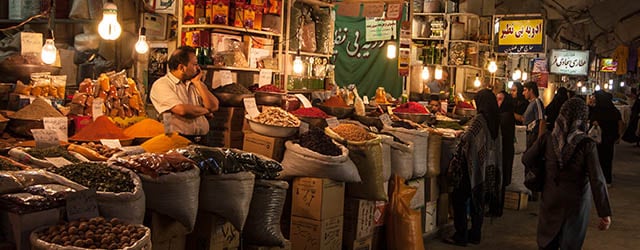“An economic windfall.” That’s how the World Bank’s chief economist for the Middle East and North Africa, Shantayanan Devarajan, characterized the boost to the Iranian economy from the lifting of sanctions in the wake of the nuclear deal struck with the permanent members of the UN Security Council.

“That’s a technical term in economics, meaning a one-time increase in resources,” noted Devarajan at a speech at the Carnegie Endowment for International Peace in August. But he warned that sustainable growth will depend on how the government manages this windfall.
A report by the World Bank recommended Iran make investments in domestic infrastructure and high-tech, non-oil industries. The multilateral estimates the size of the windfall will amount to a national welfare gain of $13 billion, or an increase in per capita income of 2.8%.
But according to economist Zubair Iqbal, an adjunct scholar at the Middle East Institute, “The World Bank assessment is too rosy. In the short run, the Iranian economy will benefit as frozen assets are released,” he said, but medium and long-term effects are not clear-cut. The potential gains depend on the government’s ability to get the resource allocation right and reduce the role of the public sector. “There will be increase in oil revenues,” he adds, “but also an appreciation of the rial, which will have a negative effect. So if policy reforms fall short, growth will be slower.”
Ali Vaez, Iran senior analyst at the International Crisis Group, does not think new financial resources will impact Iran’s regional policies, which, experience shows, “are not based on money in the bank but rather on geostrategic calculations and threat perception. Sanctions peaking between 2011 and 2013 didn’t moderate Iranian actions in the region or reduce its support of regional allies.”
Still, “With no sanctions relief, there would have been no deal, reigniting the crisis and another cycle of escalation. How would that be better?”



